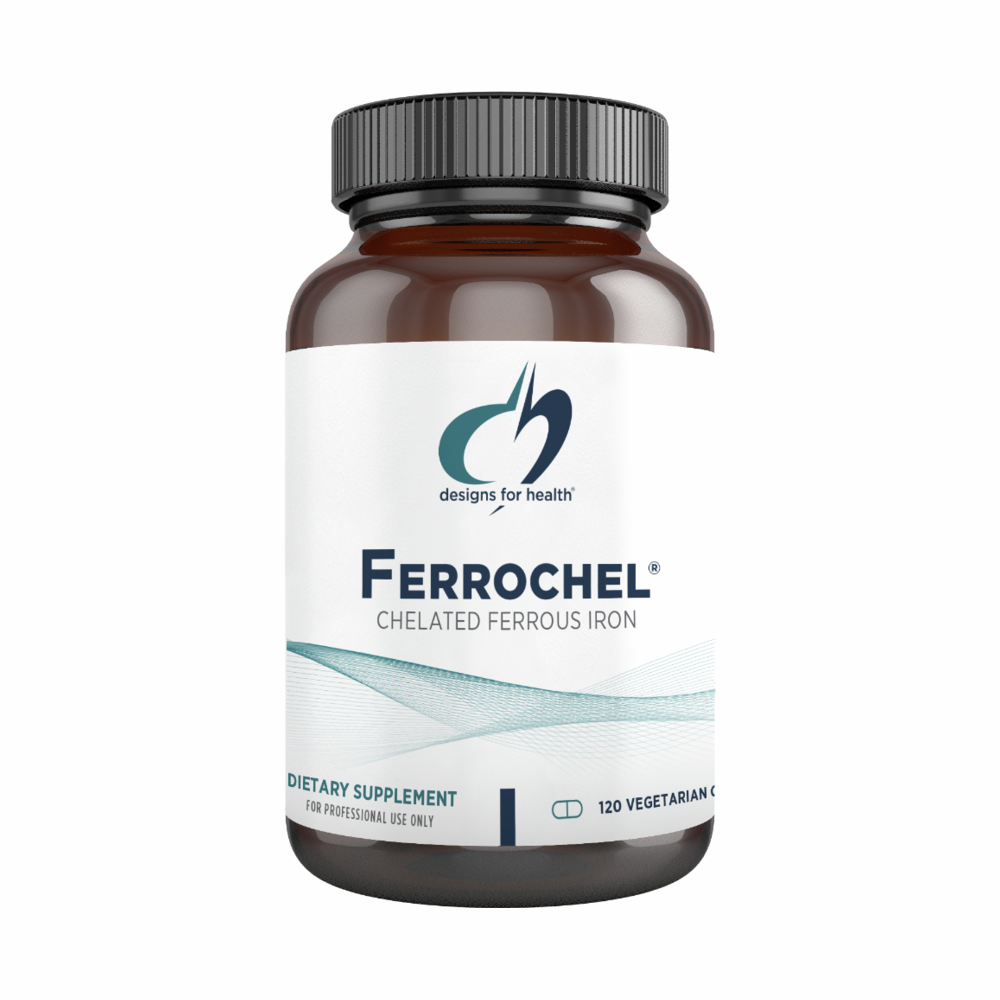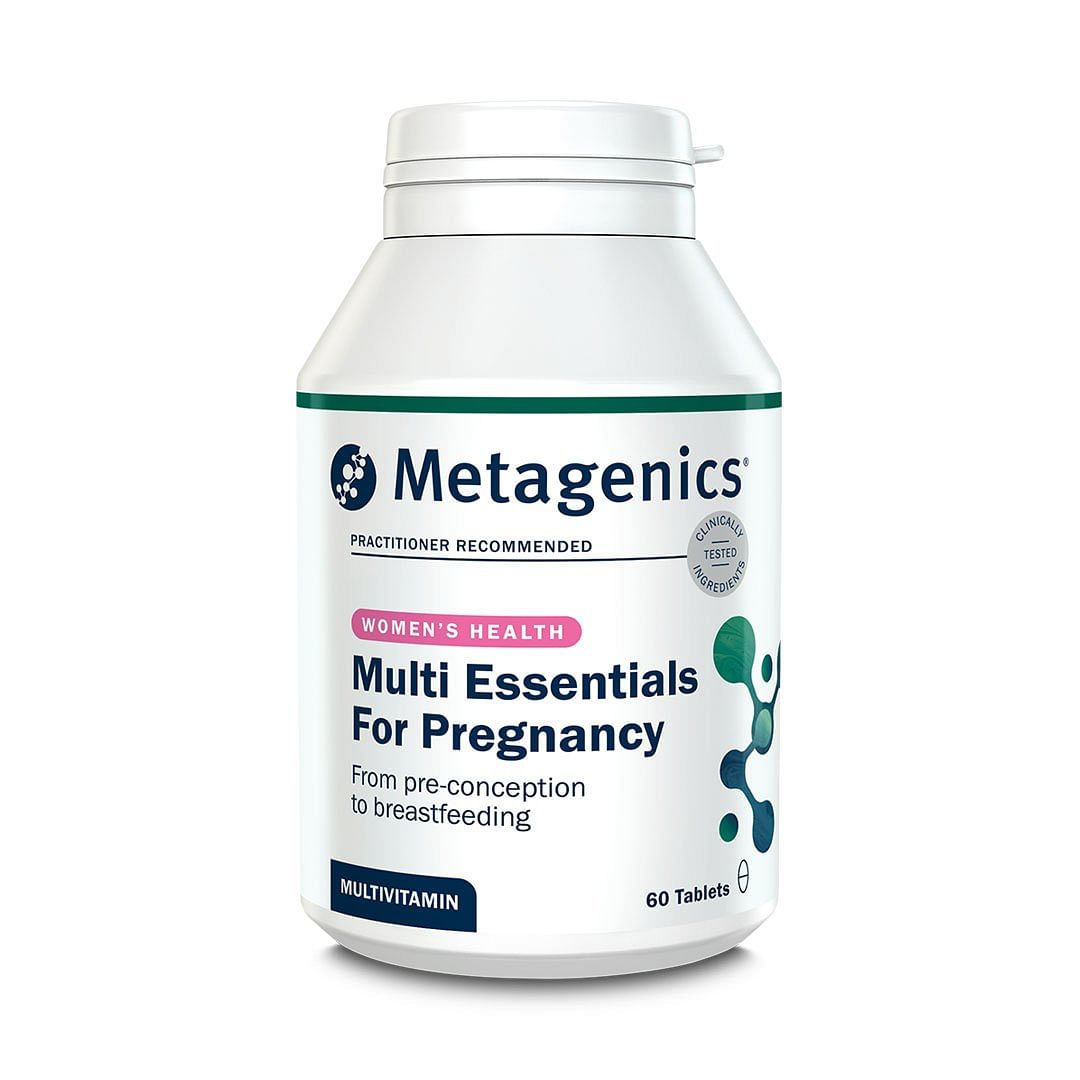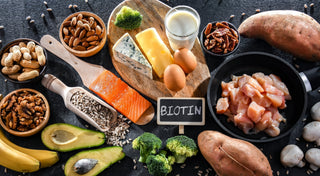Iron is one of the most vital minerals for maintaining overall health, playing a key role in oxygen transport, energy production, and immune support. But during pregnancy, its importance skyrockets. As a mother’s body undergoes profound changes to support the growing baby, iron becomes a cornerstone nutrient, essential not just for maternal wellbeing, but for foetal development too.
To support this increased need, many turn to high-quality iron supplements. Explore our curated Iron Collection for trusted options that meet pregnancy-safe standards. For a broader approach to prenatal nutrition, our Pregnancy Supplements Collection offers targeted support for every stage of the journey.
Not sure where to begin? Our expert Trimester-by-Trimester Guide breaks down exactly what your body needs and when, so you can feel confident and supported from conception to postpartum.
Why Do Pregnant Women Need Iron?
Pregnant women need significantly more iron than usual. Why?
- Blood volume increases by up to 50%, requiring more haemoglobin to carry oxygen.
- The placenta and developing baby draw heavily on maternal iron stores.
- Iron supports energy levels, immune function, and cellular growth.
- Low iron levels can lead to fatigue, dizziness, and iron-deficiency anaemia, which may affect birth outcomes.
Here’s a breakdown of the key processes supported by iron during pregnancy:
| Function | Mother | Baby |
| Oxygen Transport | Supports increased haemoglobin production for expanded blood volume | Helps form red blood cells and oxygen delivery systems |
| Energy Production | Prevents fatigue and supports metabolic demands | Fuels rapid cellular growth and development |
| Immune Function | Strengthens maternal immunity during a vulnerable time | Supports immune system development |
| Placental Health | Aids in the formation and function of the placenta | Ensures proper nutrient and oxygen exchange |
| Brain Development | — | Crucial for neurological development |
| Iron Storage | Builds reserves for labour and postpartum recovery | Establishes iron stores for the first six months of life |
Iron Monitoring for Elective C-Sections
Iron levels are especially important to monitor if you're planning an elective C-section. Surgical delivery increases the risk of blood loss, and low iron levels can complicate recovery and healing. Ensuring optimal iron status beforehand can reduce the risk of transfusion and support better post-operative outcomes.
Regular blood tests during prenatal care help track iron levels, and supplementation may be recommended if levels fall below optimal thresholds.
What Causes Low Iron in Pregnancy?
Low iron, also known as iron-deficiency anaemia, is one of the most common nutritional concerns during pregnancy. But why does it happen, even when many women are eating well and prenatal vitamins? The answer lies in the dramatic physiological changes that occur during pregnancy. As your body works overtime to support both you and your growing baby, iron demands can quickly outpace supply.
Common Causes of Low Iron in Pregnancy;
Increased Blood Volume
By the third trimester, your blood volume may increase by up to 50%. This surge requires more haemoglobin, which depends on iron to transport oxygen efficiently.
Foetal Growth Demands
Your baby needs iron to build its own blood supply, brain tissue, and organs. The placenta also draws heavily on maternal iron stores.
Insufficient Dietary Intake
Many women struggle to get enough iron from food alone, especially if they follow vegetarian or low-meat diets or experience food aversions during pregnancy.
Poor Iron Absorption
Iron absorption can be affected by factors like low stomach acid, high calcium intake, or consuming iron inhibitors (e.g. tea, coffee) with meals.
Multiple Pregnancies
If you've had back-to-back pregnancies, your iron stores may not have had time to fully replenish.
Heavy Menstrual History
Women with a history of heavy periods may start pregnancy with lower iron reserves, increasing their risk of deficiency.
Elective C-Section Considerations
Planning a C-section? Iron levels are especially important to monitor. Blood loss during surgery can be significant, and low iron status may increase the risk of complications or slow recovery. Ensuring optimal iron levels beforehand can support better outcomes and reduce the need for transfusions.
What Causes High Iron Levels in Pregnancy?
While iron deficiency is a common concern during pregnancy, high iron levels can also occur and they’re just as important to monitor. Iron is essential for both mother and baby, but too much iron can lead to complications such as oxidative stress, gastrointestinal discomfort, and impaired nutrient absorption.
Common Causes of Elevated Iron Levels;
Excessive Supplementation
Taking high-dose iron supplements without medical supervision can lead to iron overload, especially if dietary intake is already sufficient.
Genetic Conditions
Disorders like hereditary haemochromatosis can cause the body to absorb and store too much iron.
Low Iron Utilisation
If the body isn’t effectively using iron (due to inflammation or other metabolic issues), levels may build up in the bloodstream.
Reduced Blood Loss
Women who had light menstrual cycles before pregnancy may start with higher iron stores, increasing the risk of excess when supplementing.
Iron-Rich Diet + Supplements
Combining iron-rich foods with supplements without adjusting dosage can push levels beyond what’s needed.
Symptoms of Low Iron in Pregnancy
When iron levels drop too low, the body struggles to produce enough healthy red blood cells, leading to iron-deficiency anaemia. Recognising the symptoms early can help prevent complications for both mother and baby. Here's a breakdown of common symptoms, where they occur, and how they typically present:
| Symptom | Area of the Body Affected | How It Presents |
| Fatigue & Weakness | Whole body | Persistent tiredness, low energy, difficulty concentrating |
| Pale Skin | Skin | Noticeably lighter complexion, especially on face or palms |
| Shortness of Breath | Respiratory system | Feeling winded after minimal activity |
| Dizziness or Light-headedness | Nervous system | Feeling faint, especially when standing up quickly |
| Heart Palpitations | Cardiovascular system | Irregular or rapid heartbeat |
| Cold Hands and Feet | Circulatory system | Poor blood flow causing chilliness in extremities |
| Brittle Nails | Skin and appendages | Nails that crack, split, or grow slowly |
| Headaches | Nervous system | Frequent or persistent headaches |
| Restless Legs Syndrome | Musculoskeletal system | Urge to move legs, especially at night |
| Cravings for Non-Food Items (Pica) | Behavioural | Desire to eat ice, clay, or other unusual substances |
How to Increase Iron in Pregnancy
Boosting iron intake is essential during pregnancy. As blood volume expands and the baby’s needs grow, iron levels can dip, leading to fatigue, dizziness, and even anaemia if left unchecked.
Iron-Rich Foods to Include
A balanced diet is the foundation of healthy iron levels. Focus on foods that are naturally rich in iron, and pair them with vitamin C to enhance absorption.
- Red meat (beef, lamb, liver) – excellent source of heme iron
- Dark leafy greens (spinach, kale) – non-heme iron, best paired with citrus
- Legumes (lentils, chickpeas, beans) – plant-based iron with fibre
- Fortified cereals and grains – easy to incorporate into breakfast
- Dried fruits (apricots, raisins) – iron-packed snacks
- Tofu and tempeh – great for vegetarians and vegans
When Diet Isn’t Enough: Iron Supplements
Even with a nutrient-rich diet, many pregnant women still need iron supplements to meet their increased requirements, especially in the second and third trimesters. Supplements offer a concentrated dose that can help prevent or treat iron-deficiency anaemia.
Iron supplements and iron-rich foods work best together. While food provides a steady baseline, supplements can fill the gap when your body’s demand outpaces dietary intake.
|
Ferrochel - 120 Capsules | Designs For Health Ferrochel® delivers iron in the highly absorbable ferrous bisglycinate form, designed to support optimal iron levels without the common side effects of constipation or gastric discomfort. Ideal for those at risk of deficiency, including pregnant and lactating women, teenagers, and adults. Safe, well-tolerated, and clinically trusted, Ferrochel® is a smart choice for anyone needing reliable iron support. |
How to Take Iron Supplements for Pregnancy
Choosing the right form and timing of supplementation can make a big difference in how well your body absorbs and tolerates iron. Below is a breakdown of common types of iron supplements, typical dosage ranges, and when they’re most beneficial during pregnancy:
| Type of Iron Supplement | Typical Dosage | Best Time to Use During Pregnancy | Notes |
| Iron Bisglycinate (Chelated Iron) | 25–30 mg elemental iron (1x/day) | Ideal for early pregnancy or sensitive digestion | Highly absorbable and gentle |
| Liquid Iron | Varies (10–30 mg per dose) | Useful in any trimester, especially if tablets are poorly tolerated | Easy to adjust dose; may stain teeth |
| Slow-Release Iron | 45–60 mg elemental iron (1x/day) | 2nd trimester onward for sustained absorption | Lower risk of GI upset; slower absorption |
| Iron + Multivitamin Combo | Varies by brand | Throughout pregnancy for general support | Convenient but may contain lower iron levels |
Important Reminder
Always consult your healthcare provider before starting or changing any iron supplement regimen. Dosage needs vary based on individual iron levels, dietary intake, and overall health. Over-supplementation can lead to iron overload, which carries its own risks.
Pregnancy Care and Fertility Support
Pregnancy is a transformative experience, physically, emotionally, and nutritionally. As we've explored, iron is just one of many essential nutrients that support a healthy pregnancy. Whether you're trying to conceive or already expecting, supplementation is a powerful tool to support your body’s changing needs. During pregnancy, supplements help fill nutritional gaps, support foetal development, and reduce the risk of complications. But even before pregnancy, targeted nutrients can enhance fertility, regulate cycles, and prepare the body for conception.
Explore our curated collections for every stage:
- Pre-Pregnancy Vitamins – designed to support hormonal balance, egg health, and cycle regulation
- Men’s Fertility Supplements – formulated to enhance sperm health and reproductive function
-
Prenatal & Pregnancy Supplements – tailored for each trimester to support maternal wellbeing and baby’s development
|
Metagenics Multi Essentials For Pregnancy Multivitamin - 60 Tablets 25 essential vitamins and minerals to support pre-conception, pregnancy, and breastfeeding. Developed with safety in mind, this high-strength formula includes only ingredients considered safe during pregnancy—like beta-carotene as a gentle form of vitamin A. Metagenics’ advanced nutrient forms promote fertility, immune health, energy, and foetal development. |







